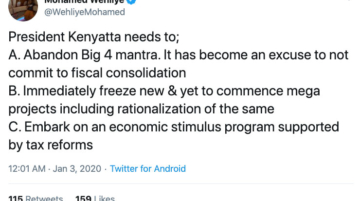African countries have been lobbying for the International Monetary Fund to provide emergency financing known as Special Drawing Rights (SDRs) to help them cope with the economic consequences of the COVID-19 outbreak. But David Dollar, a senior fellow in the John L. Thornton China Center at the Brookings Institution, warns that the issuance of additional SDRs could potentially get caught up in the increasingly acrimonious U.S.-China standoff.
In the latest episode of The Brookings Trade Podcast, “Dollars and Sense,” Dollar speaks with his Brookings Institution colleague Brahima Coulibaly, director of the Africa Growth Initiative at the Brookings Institution, about how to ensure that Africa gets the financial resources it needs to deal with COVID-19:










